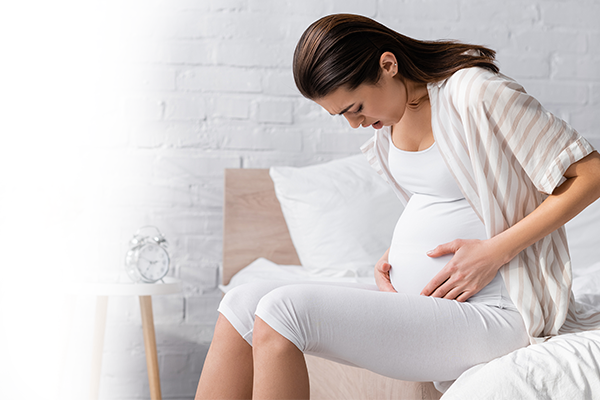Many different kinds of ailments can occur during pregnancy. A lot of women complain, especially in the last trimester, of incontinence. Sometimes the affliction persists even after childbirth. Why visit a urogynecological physiotherapist during pregnancy and what are the ways to treat incontinence during pregnancy?
Urinary incontinence in pregnancy- causes
Pregnancy time is a period when many physiological changes occur in a woman’s body. Appear also ailments that specialists categorize as deviations. Among those mentioned are. incontinence. In some women it occurs from the very beginning of pregnancy. More often, however, urinary leakage happens to pregnant women in the last trimester. This may be related to the increasing size of the baby and the uterus. As the organs lower and put pressure on the bladder, they make it difficult to stretch the bladder, and thus can contribute to incontinence. In addition, the muscles of the pelvic floor, which include the urethral sphincter muscle, may weaken during pregnancy and perform less well. On the other hand, incontinence can also occur as a result of too much tension in the aforementioned muscles. In addition, many women, through improper habits such as incomplete bladder emptying or intermittent urine stream, also risk the appearance of the described problem.
How to prevent incontinence during pregnancy?
Women’s awareness related to proper preparation for pregnancy is extremely important. Indeed, consultation with a physiotherapist during pregnancy planning can reduce the risk of incontinence both during and after pregnancy, and properly selected exercises will help strengthen the pelvic floor muscles (known as Kegel muscles). This has its positive effects in the future, among other things. During natural childbirth. The mother-to-be must also remember the physiologically reduced volume of the bladder, and thus not to postpone visits to the toilet. Proper urination habits play no small role in prevention.
Urinary incontinence after pregnancy
Pregnancies and past births are among the risk factors for incontinence. Pelvic floor muscles are stretched as a result of childbirth, making them perform less well. If the problem appeared after the birth of the child, it is worth consulting a physiotherapist who specializes in urogynecology. Proper exercise and correct habits can make it easier to deal with incontinence. If these fail, methods such as pessaries or tapes are used. Women struggling with the problem of incontinence are not advised to exercise on their own without the supervision of a specialist on a so-called “urinary incontinence”. Kegel muscles, as well as the use of popular Geisha balls. Improper tightening and relaxation of the pelvic floor muscles can exacerbate the problem instead of alleviating it.
Read also:
Midwifery-what is worth knowing about it?
Rate this article:











